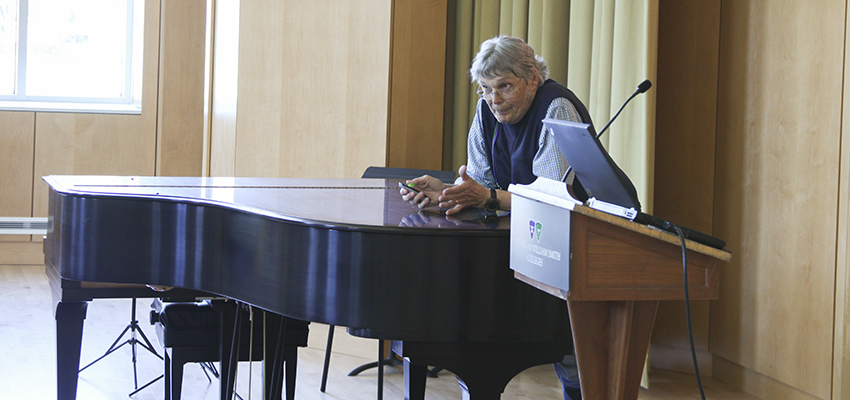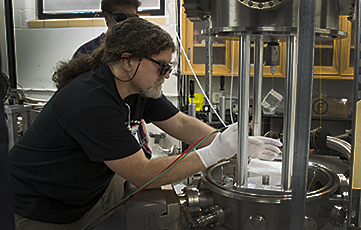
HWS News
16 June 2017 • Faculty Spates Reflects on Ruskin, Commencement
On his website, Why Ruskin, Professor of Sociology Emeritus Jim Spates reflects on the parallels between renowned 19th century British art and social critic John Ruskin’s ideas of inclusivity and the 2017 Commencement remarks of former President Bill Clinton and HWS President Mark D. Gearan L.H.D.’17.
There, Spates, who taught sociology at HWS for more than 40 years, writes that “the heart-felt words of both presidents offered to our world-ready graduates reminded me of some of Ruskin’s finest words.”
In President Clinton’s call to graduates to make use of their unique talents and abilities to enrich and strengthen the common good, Spates sees reflected Ruskin’s thought, expressed in his 1843 book, Modern Painters: “God appoints to every one of His creatures a separate mission and, if they discharge it honorably…and faithfully follow the light that is in them, withdrawing from it all cold and quenching influence, there will assuredly come of it such burning as, in its appointed mode and measure, shall shine before [all], and be of service constant and holy. Degrees infinite of luster there must always be, but the weakest among us has a gift, however seemingly trivial, which is peculiar to him, and which, worthily used, will be a gift also to his race forever. ”
President Gearan’s remarks—about surrounding oneself with good people and together doing good—reminded Spates of Ruskin’s idea that there “is not any matter, nor any spirit, nor any creature, but is capable of a unity of some kind with other creatures. And in that unity is its perfection and theirs…And so, the unity of earthly creatures is in their power and their peace–not like the dead and cold peace of undisturbed stone and solitary mountains, but in the living peace of trust, and the living power of support, of hands that hold each other and are still.”
Read full the Spates post here.
Spates joined the HWS faculty in 1971, and, over the course of his decades here, served as Chair of the Department of Anthropology and Sociology, the Urban Studies Program and various committees. His scholarship has focused on the quality of social and city life and, more recently, on the life and work Ruskin, about whom he has written a book, The Imperfect Round: Helen Gill Viljoen’s Life of Ruskin. Currently, he is at work on another book, Availing Toward Life: The Radical Social Thought of John Ruskin. In addition, he is the author of numerous scholarly articles about Ruskin and frequently lectures on him in venues both in the U.S. and abroad. With a small group of others, he is also trying to save Geneva’s beautiful 19th century Dove Block and create, on its renovated third floor, a museum dedicated to the life and work of Arthur Dove, North America’s first abstract expressionist painter.

